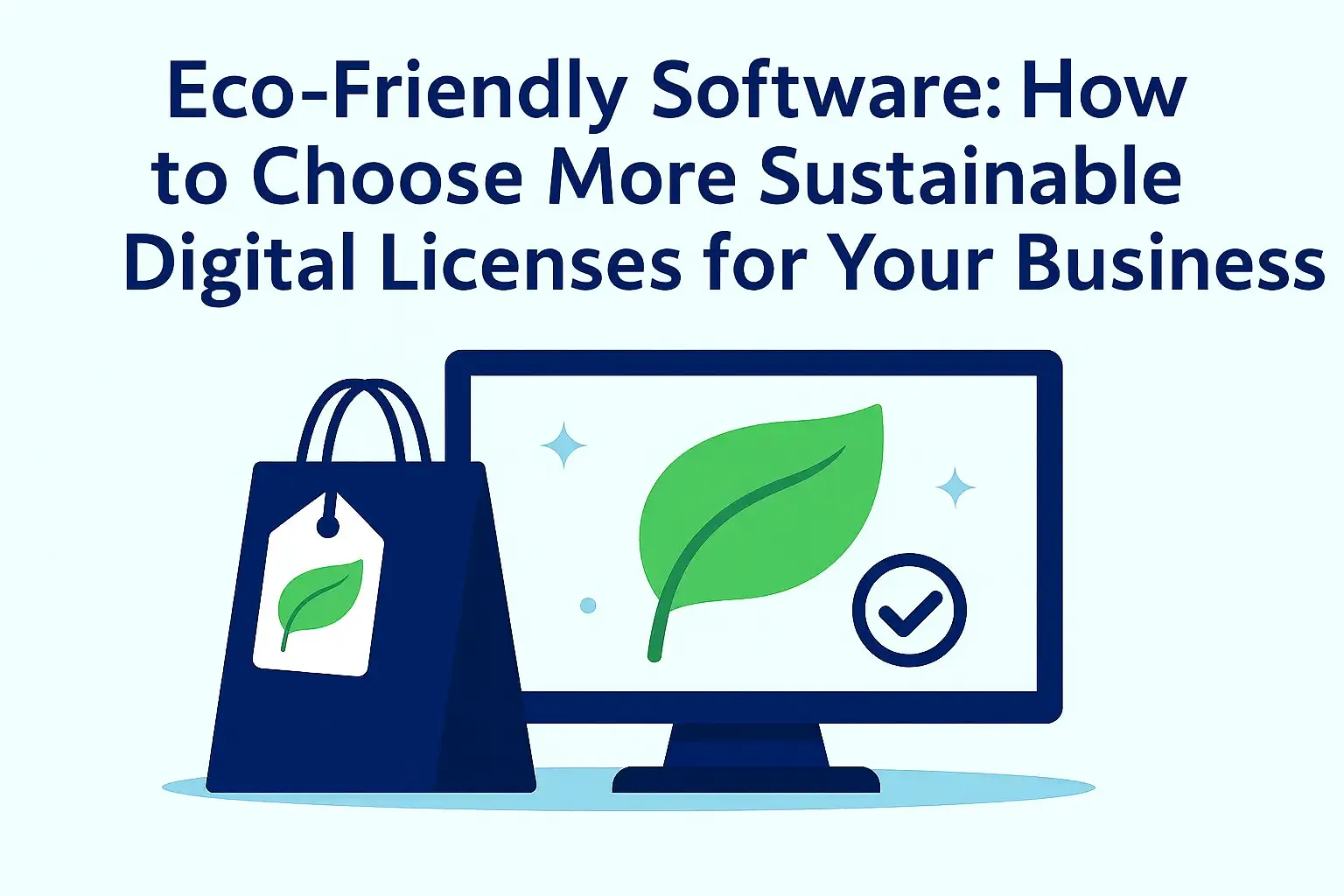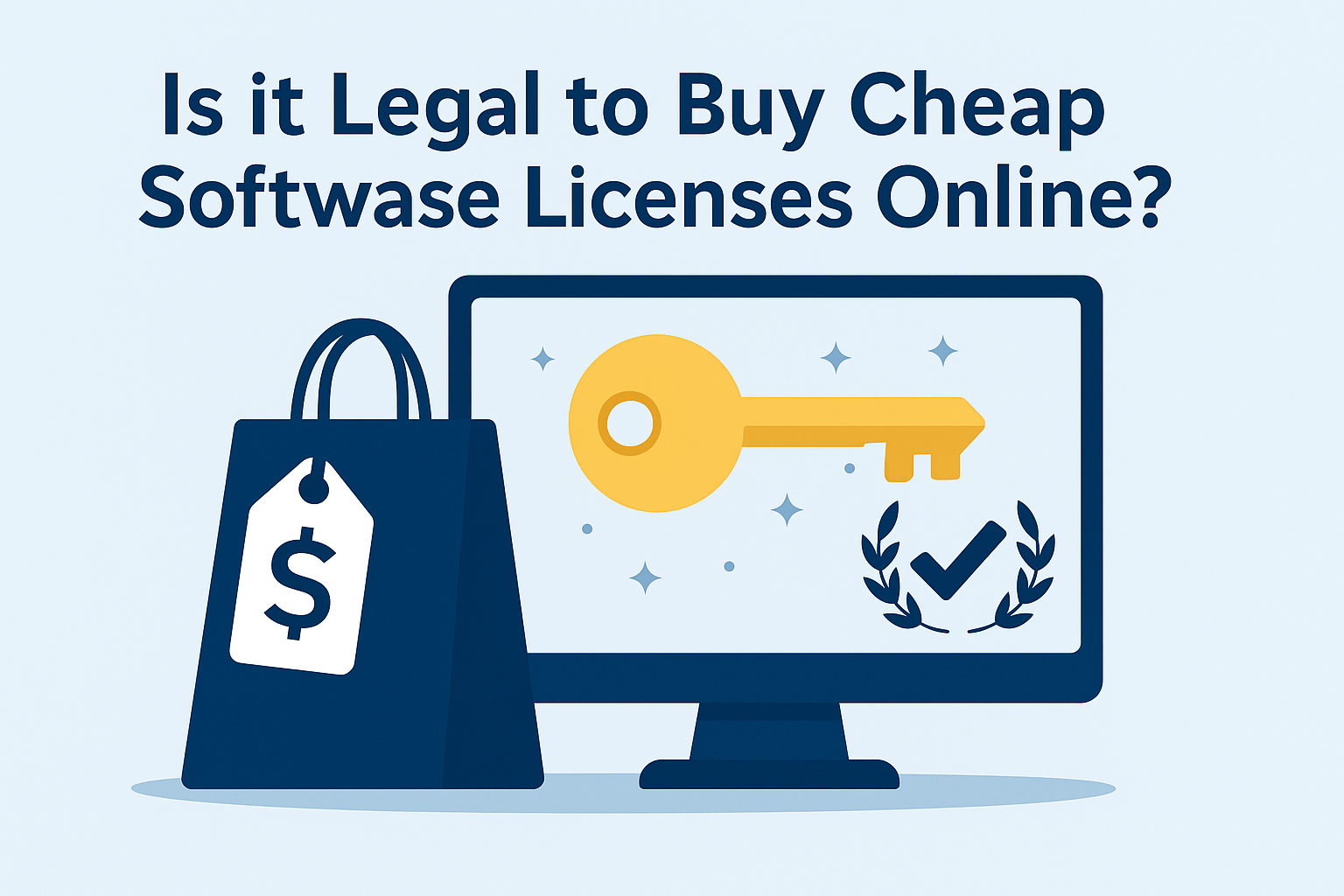Sustainable Software Licenses.Eco-Friendly Business Guide 2025

Sustainable Software Licenses.Eco-Friendly Business Guide 2025
Eco Software: How to Choose More Sustainable Digital Licenses for Your Business (2025)
In a world where digital sustainability is becoming increasingly relevant, choosing eco-friendly software licenses makes not only environmental but also strategic sense. This article explains why software licensing decisions matter for reducing ecological impact, how circular economy principles apply to software, and how your company can adopt responsible digital practices.
What Is Sustainable Software and Why Does It Matter?
Sustainable software aims to minimize its environmental footprint throughout its entire life cycle — from production to end of use. It’s not just about reducing emissions in data centers, but also about extending the lifespan of hardware and reusing existing licenses, avoiding unnecessary digital duplication and waste.
Green IT and the Digital Circular Economy
Green IT promotes the design and use of efficient and durable technology. In this context, the digital circular economy allows licenses to be reused as renewable assets, avoiding the creation of new product keys and reducing resource consumption. This directly impacts hardware longevity and overall sustainability.
How Do Sustainable Digital Licenses Reduce Environmental Impact?
1. Extending the Lifespan of Software and Hardware
Using pre-owned licenses allows businesses to continue working with stable versions without the need to renew equipment. This drastically reduces carbon emissions linked to the production cycle of new devices.
2. Less Electronic Waste
By avoiding unnecessary hardware upgrades, sustainable software minimizes tech waste. Reused software ensures that fully functional devices don’t end up in landfills.
3. Circular Economy in Licensing
Properly transferring pre-owned licenses helps prevent redundant downloads, distributions, and new key generations — saving both digital and energy resources.
4. Reduction of Organizational Carbon Footprint
Each extra year of hardware and software use translates to tons of CO₂ emissions saved. This not only contributes to corporate sustainability goals but also yields significant financial savings.
How to Choose Sustainable Digital Licenses for Your Business
Buy Only from Legal and Certified Distributors
Purchase exclusively from providers who ensure legal transfer and complete documentation (invoice, certificate of authenticity, license transfer record). This guarantees compliance and reliable functionality.
Verify Compatibility and Support
Make sure the reused license is compatible with your system and still receives security updates. Not all older products continue to get official patches.
Integrate into Your IT and CSR Policies
Include sustainable licensing in your IT and corporate responsibility strategies. Track cost savings, environmental benefits, and report them in your sustainability disclosures.
Benefits of Using Sustainable Digital Licenses
- Real cost savings compared to new licenses.
- Lower hardware costs by extending device lifespan.
- Environmental compliance aligned with EU sustainability standards.
- Enhanced brand image and corporate responsibility.
Frequently Asked Questions
Is it legal to buy pre-owned software licenses?
Yes. Within the European Union, software license transfers are legal as long as the complete right of use is transferred to the buyer.
What guarantees do pre-owned licenses offer?
Certified resellers provide activation guarantees, proper invoicing, and technical support when necessary.
Do I really save compared to new licenses?
Yes — in most cases, savings exceed 50%, especially for business or volume purchases.
Choose Sustainable Software Licenses Online
Opting for sustainable digital licenses is not only a smart financial decision but also one that aligns with your company’s values of efficiency, responsibility, and environmental respect. Now is the time to adopt responsible software acquisition practices and turn those decisions into real competitive advantages.
Note: This article does not constitute legal advice and is intended solely for general informational purposes regarding the EU legal framework (as of 2025).



